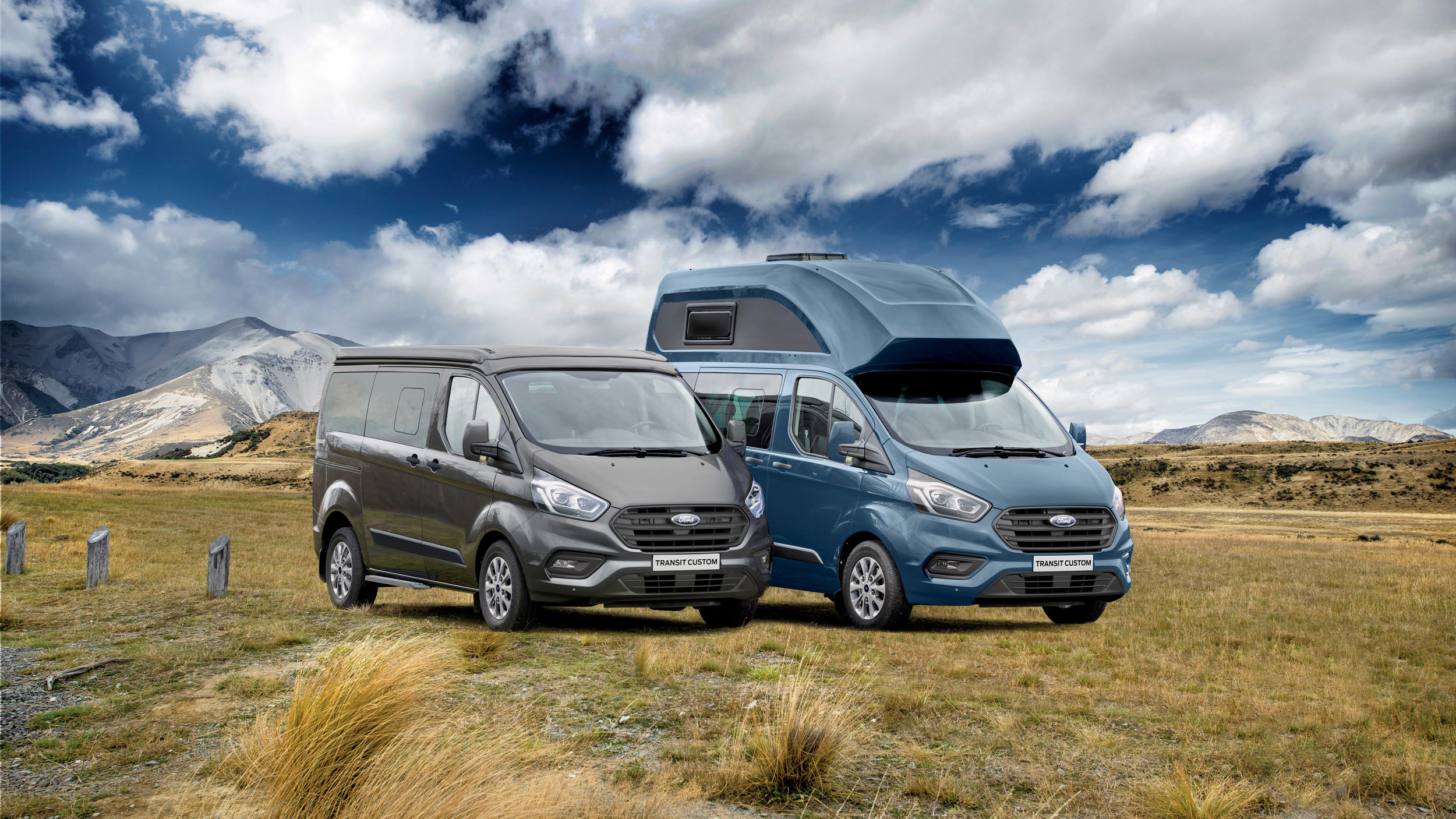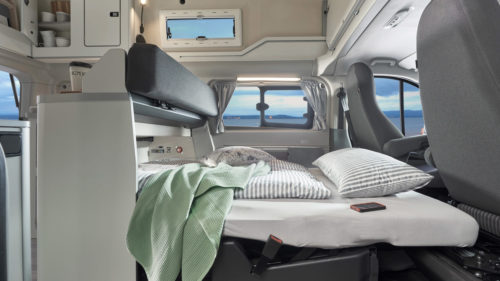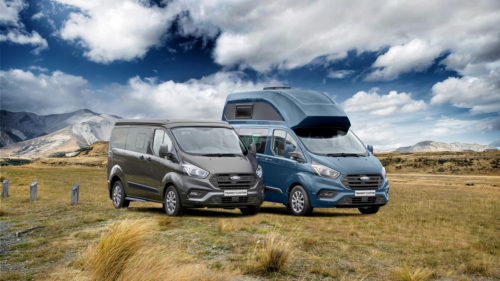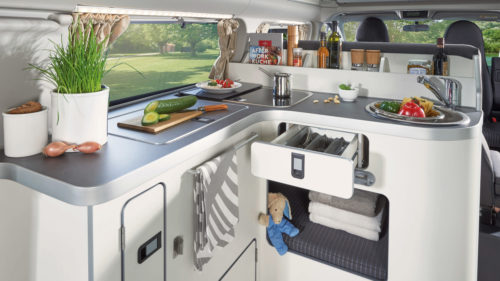Based on the market-leading Ford Transit Custom and converted by Ford’s long-term motorhome specialist partner Westfalia, the Nugget camper is already established as a popular choice of camper van in Germany.
The latest Transit Custom Nugget benefits from the enhanced refinement and advanced technology of Ford’s best-selling Transit family, including Ford’s SYNC 3 connectivity and entertainment system that will help keep adventurers connected on the move. Innovative design and high-quality conversion work creates a cosy home-from-home.
The Nugget camper can sleep up to four people, with one comfortable double bed that folds out in the roof space, and a second in the living area. A long-wheelbase Nugget Plus model provides even more stowage space and a built-in toilet with a foldaway wash basin.
Sounds awesome! I really want one. But you know what? Because of a hangover tariff ironically imposed to protect US auto manufacturers after WW2, I can’t.
According to Wikipedia, the Chicken Tax is a 25 percent tariff on light trucks (and originally on potato starch, dextrin, and brandy) imposed in 1964 by the United States under President Lyndon B. Johnson in response to tariffs placed by France and West Germany on importation of U.S. chicken. The period from 1961–1964 of tensions and negotiations surrounding the issue was known as the “Chicken War,” taking place at the height of Cold War politics.
Eventually, the tariffs on potato starch, dextrin, and brandy were lifted, but since 1964 this form of protectionism has remained in place to give U.S. domestic automakers an advantage over competition (e.g., from Japan and Thailand). Though concern remains about its repeal, a 2003 Cato Institute study called the tariff “a policy in search of a rationale.”
As an unintended consequence, several importers of light trucks have circumvented the tariff via loopholes, known as tariff engineering. Ford (ostensibly a company that the tax was designed to protect), imported its first-generation Transit Connect light trucks as “passenger vehicles” to the U.S. from Turkey, and immediately stripped and shredded portions of their interiors (e.g., installed rear seats, seatbelts) in a warehouse outside Baltimore.
To import vans built in Germany, Mercedes “disassembled them and shipped the pieces to South Carolina, where American workers put them back together in a small kit assembly building.” The resulting vehicles emerge as locally manufactured, free from the tariff.
But they aren’t as cool and they have to go to specialist refitters. You can’t buy one, jump in it, and head for the prairies.
Mind you, this guy has made a great job of this camper.



